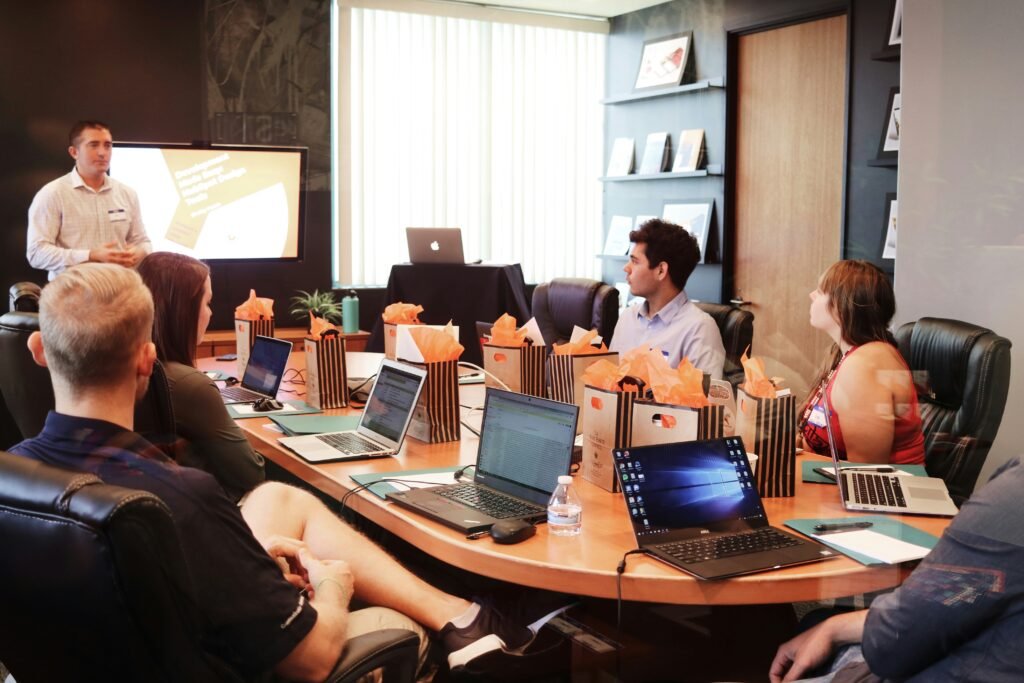
The Software-as-a-Service (SaaS) industry has exploded over the past decade, with companies across every sector rushing to capitalize on the subscription economy. But here’s the thing – building a successful SaaS business isn’t just about having a great product idea. It’s about understanding complex subscription models, navigating customer acquisition costs, optimizing retention rates, and scaling operations efficiently.
That’s where specialized consultants come in. After spending several years helping various startups transition from traditional software models to SaaS platforms, I’ve seen firsthand how the right consulting partner can make or break a company’s growth trajectory. Whether you’re launching your first SaaS product or trying to scale an existing platform, working with experienced SaaS consulting professionals can save you from costly mistakes and accelerate your path to profitability.
The challenge? There are hundreds of consulting firms claiming SaaS expertise, but not all of them understand the nuances of subscription business models, churn analysis, or the technical complexities of cloud-native architectures. Some are generalist consultants who’ve simply added “SaaS” to their service list, while others are boutique specialists who’ve been in the trenches with successful SaaS companies for years.
If you’re a SaaS company looking for the right partner to help unlock the growth for you, then this article is for you. I’ve compiled a list of the top 10 SaaS consulting companies in the USA. These firms have proven experience helping companies navigate everything from initial product-market fit to enterprise-level scaling challenges.
Before diving into the rankings, let’s establish what separates excellent SaaS consultants from the rest of the pack. Through my research and personal experience, I’ve identified several key factors:

Headquarters: New York, NY
Founded: 1926
Specialization: Enterprise SaaS transformation, digital strategy
Notable Clients: Microsoft, Salesforce, Adobe
McKinsey’s Digital Practice has become a powerhouse in SaaS consulting, particularly for large enterprises transitioning to subscription models. Its strength lies in combining traditional strategy consulting with deep technical expertise.
What sets it apart is their ability to handle massive organizational transformations. When a Fortune 500 company needs to shift from perpetual licensing to SaaS, McKinsey has the resources and experience to manage every aspect of the transition.
Pros:
Cons:
Headquarters: Boston, MA
Founded: 1973
Specialization: SaaS growth strategy, private equity SaaS due diligence
Notable Clients: Zoom, Dropbox, HubSpot
Bain has built a reputation as the go-to consultant for SaaS companies backed by private equity. Its Technology Practice division combines rigorous analytical frameworks with practical implementation experience.
Its SaaS benchmarking database is particularly valuable as it can quickly identify where a company stands relative to industry standards on key metrics like gross revenue retention, sales efficiency, and customer acquisition costs.
Pros:
Cons:
Headquarters: Boston, MA
Founded: 1963
Specialization: SaaS product strategy, digital transformation
Notable Clients: ServiceNow, Workday, Atlassian
BCG’s Technology Advantage Practice has developed sophisticated frameworks specifically for SaaS companies. It’s particularly strong in product strategy and helping companies optimize their feature development roadmaps.
Its approach combines traditional consulting rigor with agile methodologies, making them effective for both strategic planning and rapid execution initiatives.
Pros:
Cons:
Headquarters: New York, NY
Founded: 1845
Specialization: SaaS implementation, cloud migration, security
Notable Clients: Oracle, SAP, Amazon Web Services
Deloitte’s strength in SaaS consulting comes from its massive technology implementation capabilities. It excels at helping companies migrate to cloud-native architectures and implement complex SaaS platforms.
Its Technology Strategy & Architecture practice combines business consulting with deep technical implementation skills, making it valuable for SaaS companies dealing with complex integration challenges.
Pros:
Cons:

Headquarters: Multiple locations (US-based)
Founded: 2018
Specialization: Full-cycle SaaS development, product strategy, technical consulting
Notable Clients: Various growth-stage and enterprise SaaS companies
Brights.io has carved out a unique position in the SaaS consulting space by combining deep technical expertise with strategic business consulting. It specializes in helping companies build scalable SaaS products from the ground up, as well as optimizing existing platforms for growth.
What makes Brights.io particularly valuable is its end-to-end approach – it don’t just provide strategy recommendations but help implement the technical solutions too. Its team includes experienced developers, product managers, and business strategists who understand both the technical and commercial aspects of SaaS businesses.
Pros:
Cons:
Headquarters: Dublin, Ireland (US offices nationwide)
Founded: 1989
Specialization: SaaS platform development, system integration
Notable Clients: Microsoft, Google Cloud, Salesforce
Accenture’s Software & Platforms practice focuses heavily on implementation and system integration. It’s particularly strong at helping large enterprises adopt and customize SaaS platforms.
Its global delivery model allows them to provide cost-effective implementation services while maintaining high quality standards.
Pros:
Cons:
Headquarters: London, UK (Large US presence)
Founded: 1849
Specialization: SaaS financial modeling, compliance, risk management
Notable Clients: Various Fortune 500 SaaS companies
PwC brings a unique perspective to SaaS consulting through their combination of technology expertise and deep financial/regulatory knowledge. They’re particularly valuable for companies dealing with complex compliance requirements or sophisticated financial modeling needs.
Pros:
Cons:
Headquarters: London, UK (Major US operations)
Founded: 1849
Specialization: SaaS business model transformation, digital strategy
Notable Clients: Various mid-market and enterprise SaaS companies
EY’s Technology Transformation practice has developed strong capabilities in helping traditional software companies transition to SaaS models. It understands both the technical and business model challenges involved in this transformation.
Pros:
Cons:
Headquarters: Amstelveen, Netherlands (It has a strong US presence)
Founded: 1987
Specialization: SaaS operations, process optimization
Notable Clients: Various enterprise software companies
KPMG’s Technology Advisory practice focuses on operational excellence and process optimization for SaaS companies. It’s particularly good at helping organizations improve their operational efficiency and scale their support operations.
Pros:
Cons:
Headquarters: Seattle, WA
Founded: 2001
Specialization: Mid-market SaaS implementation, change management
Notable Clients: Various mid-market software companies
Slalom has built a strong reputation in the mid-market SaaS space. They offer a more personal, relationship-driven approach compared to the Big Four, while still maintaining high-quality delivery standards.
Pros:
Cons:

Selecting the right consulting partner depends heavily on your company’s specific situation, budget, and goals. Here are some key considerations:
You should choose the SaaS consulting company as per the stage of your firm to ensure that you can find the right partner.
| Stage | What you likely need | Best Fit(s) |
|---|---|---|
| Pre-seed to MVP | Discovery workshops, fast prototyping | Brights.io, Slalom |
| Growth ($1M–$10M) | Pricing strategy, churn control | Bain, Brights.io |
| Scale ($10M+) | Infrastructure scaling, GTM ops | BCG, Accenture, Deloitte |
| Enterprise ($50M+) | Compliance, system integrations | McKinsey, PwC, Deloitte |
Costs charged by SaaS consulting companies can vary dramatically:
Different consultants excel in different areas, which means you should go for the one that meets your requirements:
Through my research and conversations with SaaS executives, several red flags emerged when evaluating consulting firms:
Lack of SaaS-specific experience: General management consultants who claim they can “quickly learn” SaaS nuances often underestimate the complexity of subscription business models.
No concrete case studies: Firms that can’t provide specific examples of SaaS companies they’ve helped, with measurable results, should be approached with caution.
Overly theoretical approach: Consultants who focus only on high-level strategy without understanding implementation challenges may leave you with beautiful presentations but no actionable results.
Poor cultural fit: SaaS companies often have unique cultures that value speed, experimentation, and data-driven decision making. Consultants who don’t align with these values may struggle to be effective.

The best SaaS consulting engagements happen when there’s strong alignment between the consultant’s expertise and your company’s specific needs. Here’s a practical framework for making your decision:
The SaaS consulting landscape offers tremendous variety, from global strategy firms to specialized boutiques. The key is finding a partner whose expertise, approach, and culture align with your company’s specific needs and stage of development.
Remember that the most expensive consultant isn’t always the best choice, nor is the cheapest necessarily a good value. The right SaaS consulting partner should bring deep expertise, proven methodologies, and a track record of helping companies like yours achieve measurable results.
Whether you’re just starting your SaaS journey or looking to scale to the next level, investing in the right consulting expertise can accelerate your growth and help you avoid costly mistakes. Take the time to evaluate your options carefully, and don’t hesitate to ask tough questions about experience, methodology, and expected outcomes.
The SaaS market continues to evolve rapidly, and having experienced guides who understand both the strategic and tactical aspects of building successful subscription businesses can make the difference between struggling to grow and achieving sustainable, profitable scale.